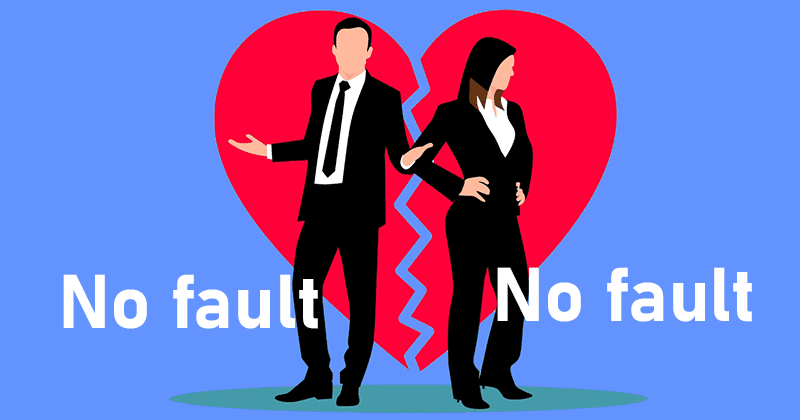If you’re a parent going through separation or divorce in California or another state with similar laws, you should know that the divorce laws can affect what happens with child custody. Here is an outline of the key legal points for separating parents.
Best Interests of the Child
California’s custody laws are designed to prioritise the “best interests of the child” in all decisions regarding parenting arrangements. The court considers various factors to determine what will best serve the child’s needs, including the child’s age, health, emotional ties with each parent, and the parents’ ability to provide care and stability.
The law generally encourages joint custody, where both parents share responsibility, but will consider sole custody if one parent is deemed unable to provide a safe and nurturing environment.
Additionally, the court evaluates each parent’s capacity to facilitate a positive relationship between the child and the other parent. Factors such as the parent’s history of involvement in the child’s life, their ability to co-parent, and any history of abuse or neglect play a significant role in custody decisions.
No-Fault Divorce

California, along with other states such as Colorado, has a modern approach to the problem we’ve customarily come to know as divorce. In fact, the State doesn’t use the phrase any longer in the legal parlance; this course of action is labelled as a “dissolution of marriage” process. This particular change is actually part of an effort by California lawmakers to foster a legal environment that facilitates cooperation and pragmatism.
California is a no-fault divorce state. You can’t file for a dissolution of marriage based mostly on the reason of fault. The only grounds which are acknowledged are irreconcilable differences and, additionally, incurable insanity.
The State would rather that married couples that are divorcing figure out an arrangement voluntarily that they both find acceptable, and this is going to be particularly true when ever there are children involved.
No-fault divorce means courts do not have to consider the “bad behavior” of parents except in custody matters. While marriage impacts are ignored, certain behaviors could impact on the ability of a parent to raise a child or maintain an effective co-parenting relationship with the other party.
Contrast with At-Fault Divorce States
Within states where at-fault divorce proceedings are allowed, allegations of marital wrong doings could possibly impact judgements of the court on the subject of issues for example spousal support and even child custody. This certainly does create an incentive to allege fault. Yet, on many occasions, any behavior that may be specified wasn’t the true reason for the relationship breaking down.
Suggestions of fault cause a lot of ill will and also bad feelings, and not many if any situations can be exclusively attributable to the activities of just one person.
The moment the judge needs to settle custody issues in an adversarial environment, one or quite often both of the partners are inevitably likely to feel as if they were not dealt with fairly. This type of lingering unhappiness will be an issue that will negatively affect any children plus make it challenging for the former spouses to communicate going forward.
Finding Common Ground
Ideally, parents can agree on custody. A high priority is agreeing on a suitable custody schedule, such as joint custody or a 70/30 schedule. Having a judge choose a particular timetable could result in both parties being inconvenienced and one party seeing their child or children too infrequently.
The great news is that most partners can and do discover common ground and move through the dissolution of marriage proceeding having agreed on the conditions. Some 95% of divorce or dissolution procedures are usually uncontested, and the progressive nature of the no-fault procedure helps to encourage the kind of cooperation that makes this achievable. The other 5% does remain and the court is there to make the final judgement any time no arrangement can be arrived at.
If you are going through a divorce or dissolution of marriage action in California, the only responsible way to proceed is with an experienced Californian custody attorney representing you. A good divorce attorney can offer the assistance you’ll need.
Legal Implications of Contested Custody Decisions
In California, when parents cannot agree on custody arrangements, the court steps in to make a decision based on the best interests of the child. This process is governed by California’s strict custody laws, which aim to ensure that all decisions support the child’s welfare. However, when parents take their disputes to court, the resulting legal battle can become highly adversarial, often leading to outcomes that neither parent fully supports.
The contentious nature of these proceedings can have long-term effects. Even though the court’s decision is legally binding, it may not resolve underlying tensions between the parents. This ongoing conflict can make co-parenting challenging, potentially creating a hostile environment that negatively impacts the child’s emotional well-being.
Understanding the legal implications of a contested custody decision highlights the importance of reaching an amicable agreement outside of court whenever possible. By cooperating and finding common ground, parents can avoid the emotional toll and lasting dissatisfaction that often accompany a court-imposed custody arrangement.

I can’t imagine that I had to google this, it still feels surreal. We both agreed on custody and how she will spend her weekends and holidays but I just want to make sure I’ve covered all ground and he can’t pull a last minute trick.
While divorce in California may be “no fault”, that doesn’t mean you still don’t have strongly contested child custody cases. The judge must ensure that the custody arrangements are in the best interests of the child. That means he/she must evaluate the qualities of each parent!